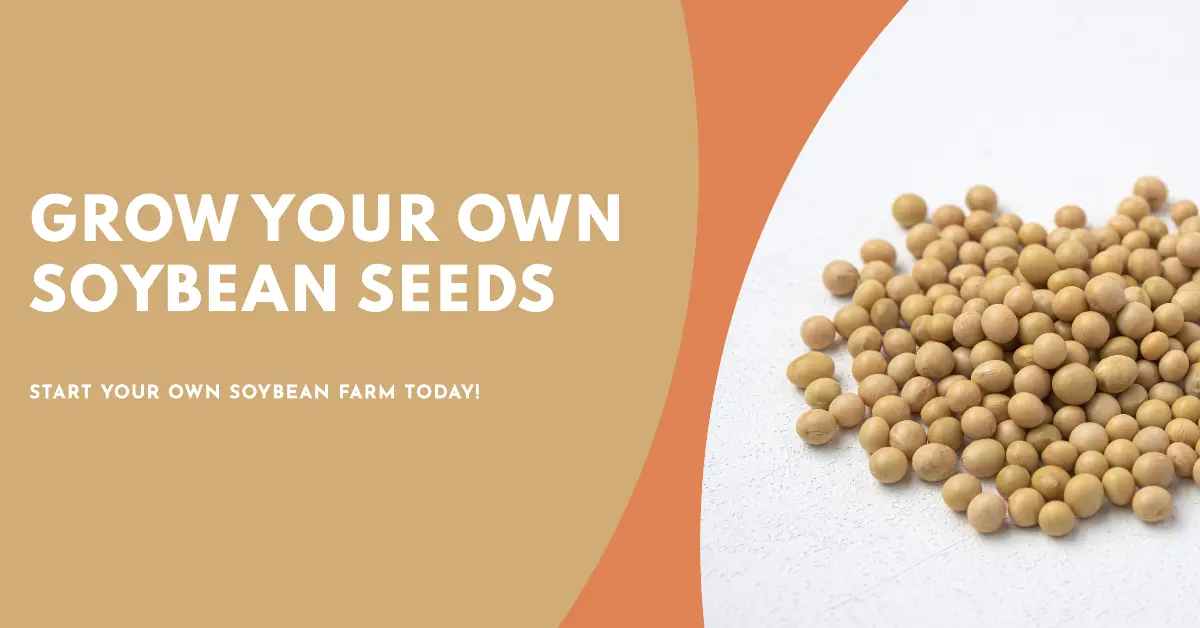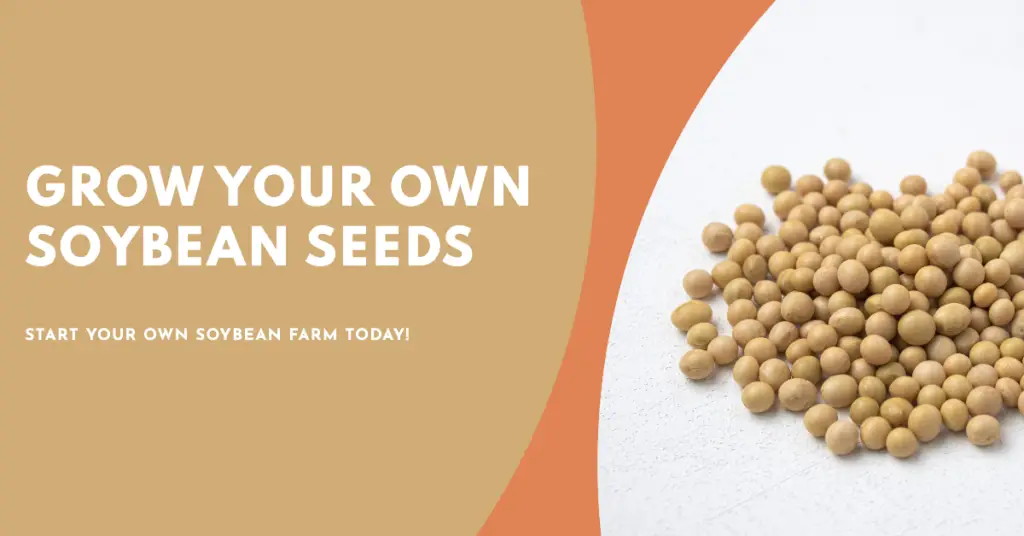
Introduction
Soybean seeds are a versatile and nutritious crop that can be grown in a variety of climates. They are a good source of protein, fiber, and healthy fats. Soybeans can be eaten fresh, cooked, or processed into a variety of products, such as tofu, soy milk, and soy sauce.

What are Soybean Seeds?
Soybean seeds are the seeds of the soybean plant, which is a legume. They are a good source of protein, fiber, and healthy fats. Soybeans are also a good source of vitamins and minerals, including iron, magnesium, and phosphorus.
Types of Soybean Seeds
There are many different types of soybean seeds, each with its own unique characteristics. Some of the most common types of soybean seeds include:
- Oilseed soybeans: These soybeans are grown for their oil content. They are typically used to make soybean oil, which is a high-quality cooking oil.
- Food soybeans: These soybeans are grown for their edible qualities. They can be eaten fresh, cooked, or processed into a variety of products, such as tofu, soy milk, and soy sauce.
- Dual-purpose soybeans: These soybeans are grown for both their oil and edible qualities. They are a good choice for farmers who want to maximize their crop yield.
How to Grow Soybean Seeds
Soybean seeds can be grown in a variety of climates, but they prefer warm, humid weather. They are typically planted in the spring, after the last frost. Soybeans need full sun and well-drained soil. They are a relatively easy crop to grow, but they do require regular watering and fertilizing.
Harvesting Soybean Seeds
Soybean seeds are typically harvested in the fall, when the pods are dry and brown. The pods are threshed to remove the seeds, and the seeds are then cleaned and stored.
Uses of Soybean Seeds
Soybean seeds can be used in a variety of ways. They can be eaten fresh, cooked, or processed into a variety of products, such as tofu, soy milk, and soy sauce. Soybean oil is a high-quality cooking oil that is used in a variety of food products. Soybean meal is a high-protein livestock feed. Soybean hulls are used as a fuel source and as a bedding material for animals.
Benefits of Soybean Seeds
Soybean seeds are a good source of protein, fiber, and healthy fats. They are also a good source of vitamins and minerals. Soybeans have been shown to have a number of health benefits, including:
- Reduces the risk of heart disease. Soybeans contain isoflavones, which are plant compounds that have been shown to lower cholesterol levels and reduce the risk of heart disease.
- Lowers blood pressure. Soybeans contain magnesium, which is a mineral that helps to regulate blood pressure.
- Lowers cholesterol levels. Soybeans contain soluble fiber, which helps to bind to cholesterol and remove it from the body.
- Improves bone health. Soybeans contain calcium and phosphorus, which are important minerals for bone health.
- Protects against cancer. Soybeans contain antioxidants, which help to protect cells from damage. Soybeans have also been shown to reduce the risk of certain types of cancer, such as breast cancer and prostate cancer.
- Promotes weight loss. Soybeans are a good source of protein, which can help you to feel full and satisfied. They are also low in calories, making them a good choice for people who are trying to lose weight.
Conclusion
Soybean seeds are a versatile and nutritious crop that can be grown in a variety of climates. They are a good source of protein, fiber, and healthy fats, and they have been shown to have a number of health benefits. If you are looking for a healthy and sustainable crop to grow, soybean seeds are a good option.




